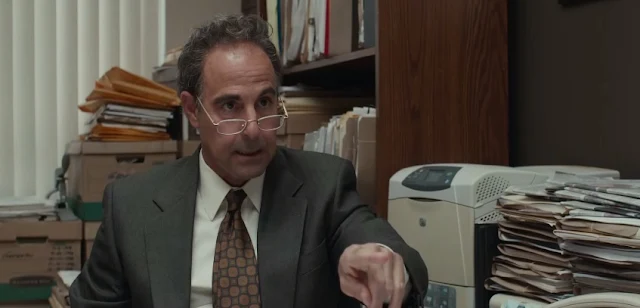
Bruce and Clark's excellent adventure
Let's get a minor issue out of the way first: Zack Snyder's latest atrocity is, well, atrocious--basically an adaptation (the fourth if you include Christopher Nolan's trilogy) of Frank Miller's The Dark Knight Returns, to the point of quoting images (pearl necklace pulling apart*), lines of dialogue ("I believe you"), entire sequences (the famed faceoff between our eponymous crimefighter and the Big Blue Schoolboy).
Night of the living dead
Lav Diaz's Norte, Hangganan ng Kasaysayan is arguably Dostoevsky's Crime and Punishment, into which is woven select threads of recent Filipino history (i.e. the Marcos dictatorship); his latest, Hele sa Hiwagang Hapis (A Lullaby to the Sorrowful Mystery), is for all intents and purposes a conflation of Jose Rizal's El Filibusterismo with the 1896 Filipino Revolution.
Caesar salad
The Coen Brothers love em or hate em are consistent; they may hold limited appeal to some (to me in particular) but they're constantly enterprising, often inventive (though not as often as they like to think they are), occasionally intriguing and--when the moon waxes full at the right time--even poignant. They often doodle on small budgets, allowing them the freedom to doodle in uncommercial or unexplored directions (at least unexplored by the mainstream Hollywood director); sometimes they win the chance to produce on a bigger budget (adjusting for inflation), resulting in a handsome-looking tho no less skewed monstrosity (The Hudsucker Proxy).
Semi-crouching Tiger
Amazing how under certain circumstances critics' reactions are so ridiculously uniform, so hilariously predictable down to specific complaints on specific titles. Crouching Tiger, Hidden Dragon: Sword of Destiny (2016) is the acknowledged sequel to Ang Lee's Crouching Tiger, Hidden Dragon (2000), so naturally mainstream reviewers compare the former to the latter, almost always unfavorably; Ang Lee is an award-winning director, so folks rhapsodize about his poetry elegance subtlety (often to the sequel's disadvantage); Lee did not direct the sequel (translated: turned down the offer) and the job went instead to the first film's action choreographer, so of course they pooh-pooh the action as being more vulgar, less lyrically staged and shot.
It helps I think to be a fan of the cinema with at least passing familiarity, instead of a clueless gwai lo sampling the picture only because it's the follow-up (translated: shameless cash grab) to a Best Picture nominee. The original Crouching Tiger was in my book one of the biggest swindles in recent years, a movie that took everything fun about the genre--the outrageous choreography, the seesawing emotional tone (from low slapstick to high tragedy and back), the no-nonsense fast-paced filmmaking--and ground it all down via emery board to a tonier more Oscar-worthy gleam.
Animal house
Disney's latest (directed by Byron Howard, Rich Moore and Jared Bush, from a screenplay by Jared Bush and Phil Johnston, story by a menagerie of writers) proposes an unlikely community where predator and prey live in uneasy harmony.
The burg, officially named 'Zootopia,' looks suspiciously like Disneyland: towering central structure much like Cinderella's Castle from which radiates neatly divided 'lands' with neatly assigned themes (Tundraland, Rainforest District, Sahara Square, Little Rodentia) and neatly divided microclimes (freezing, humid, arid, urban), not to mention a fast-gliding monorail linking all realms together. The movie borrows details from The Godfather and Who's Afraid of Roger Rabbit and granddaddy of neo-noirs Chinatown (from which Roger Rabbit cribs much of its own plot) to present a mystery: who's kidnapping the citizens of Zootopia (mainly predators), and can a rabbit (Officer Judy Hopps, voiced by Ginnifer Goodwin) and con-artist fox (Nick Wilde, voiced by Jason Bateman) work together long enough to solve the case?*
Above the Law
There's a point in Tom McCarthy's new film where brand new Boston Globe editor Marty Baron (Liev Schreiber) insists that the target isn't a few bad priests, or even the powerful cardinal shielding said priests. "We're going after the system," he informs his newsmen. It's one of the picture's more quietly powerful moments in the way it yanks us back, from considering the process of writing a series of news articles to the broader perspective: exposure of both a venerable American city and an ancient multinational organization, caught in an act of unholy collaboration.




